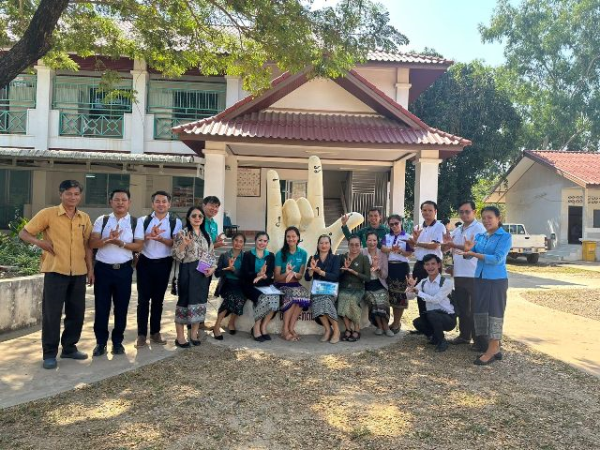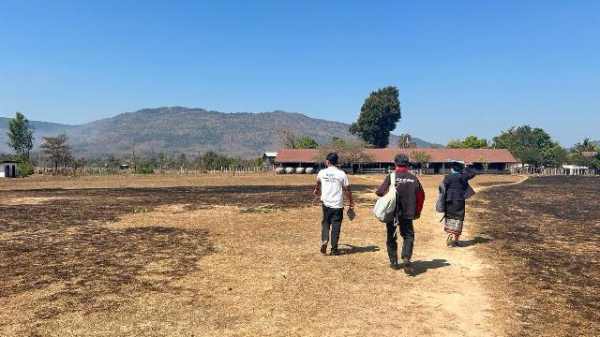KPL
(KPL) From mid-Feb, a team of 23 enumerators from targeted teacher training colleges, Ministry of Education and Sports (MoES) departments will travel to primary schools across 30 target districts to collect baseline data for a 3-year Inclusive Teaching and Learning study.

Enumerators practicing how to support any visually impaired students interviewed for the Inclusive Study data collection
(KPL) From mid-Feb, a team of 23 enumerators from targeted teacher training colleges, Ministry of Education and Sports (MoES) departments will travel to primary schools across 30 target districts to collect baseline data for a 3-year Inclusive Teaching and Learning study.
In February and March each year, they will carry out qualitative case study research through interviews in 21 targeted schools. In April each year, the team will conduct learning outcome assessments with grade one students in 120 schools.
The study will include 120 schools across 30 target districts from seven provinces (Phongsaly, Luang Namtha, Bokeo, Houaphanh, Xiangkhouang, Khammouane and Savannakhet). The schools were selected based on the diversity of their student enrolment. Schools that have students with a home language other than Lao, and/or who have students with disability, and/or have students for whom school attendance is a challenge were prioritised for the study.
The study is led by the Department of Teacher Education (DTE) with support from the Australian Government and the United Sates Agency for International Development (USAID) through the BEQUAL program.

Enumerators visiting a specialised school to understand teaching strategies used for visually and hearing impaired students
“The Department of Teacher Education guided the design of the Inclusive Study and provided guidance to districts and Teacher Training Colleges on school selection, how to support enumerators who are now doing field visits, and how to facilitate facilitating discussion on initial findings,” said Ajan Keth Phanhlack, Director General of DTE.
The study will examine changes and improvements in the teaching practices of grade 1, 2 and 3 teachers and how those practices impact on student engagement and learning. The study will identify effective strategies for creating an inclusive learning culture for students across three school years. The aim is to find promising continuous professional development (CPD) approaches and teaching practices which respond to students’ needs and contribute to inclusive teaching and learning.
Inclusive education means all students have access to quality education that effectively meets their diverse needs in a responsive, accepting, respectful and supportive environment. Inclusive education takes place in shared educational settings where students of different backgrounds and abilities are supported to overcome barriers that lead to exclusion.


Enumerators walking to a remote school in Thapangthong district, Savannakhet Province
With support from the Research Institute for Educational Sciences, approximatively 1,000 grade 1 students in the 120 schools will complete Lao language tests in 2024, 2025 and 2026. 720 classroom observations will be conducted for 120 teachers six times during the study. In-depth interviews will be held in 21 schools each year for a sample of primary students, their parents or guardians, teachers, school principals, internal pedagogical advisors, technical teams from the Teacher Training Colleges and key informants from the Ministry of Education and Sports.
“The results of this study will help us improve the teacher continuous professional development system. We will identify success cases in teaching practices that lead to more inclusive student learning in the sample schools and which CPD approaches were used. Those promising approaches will be shared to foster the teaching of the teachers and the needs of teachers and students,” Ajan Keth concluded.
KPL